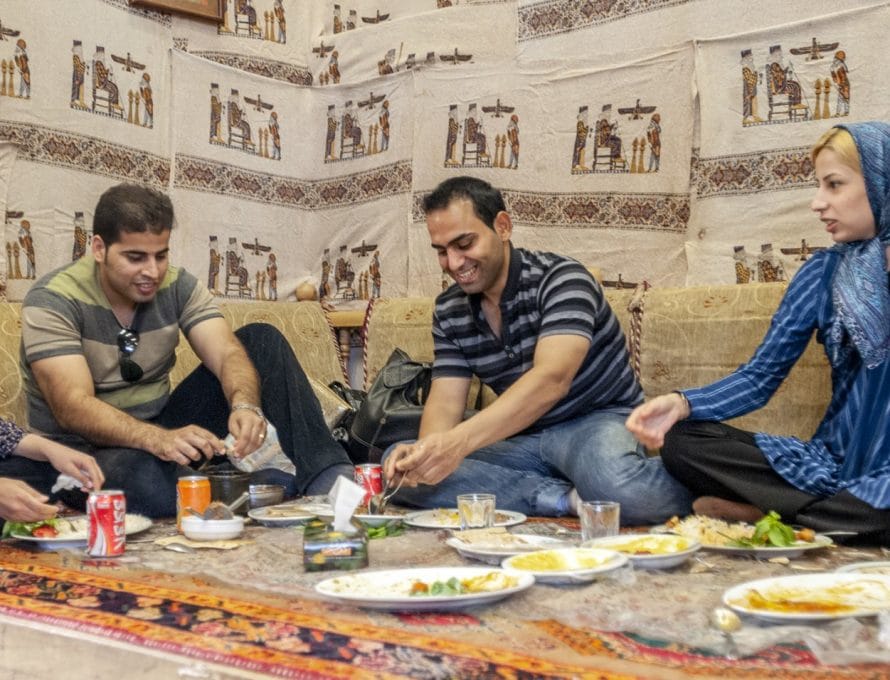CENTRAL ASIA – How can a persecuted believer trust again after being betrayed by those closest to him? How can a person rightly understand suffering when his culture is awash in prosperity gospel teaching? How can a pastor carry the weight of leading when he doesn’t know how to study Scripture?
These are challenges that Christian workers Mary and Andrew Flint* face every day as they seek to encourage growth among Persian refugee churches. Recently as they reflected on the first half of 2020, they realized that amid the noise of a global pandemic, God has been quietly answering their prayers for unity, strength and biblical integrity among Persian pastors and their small churches.
“We labor for a people group from a country where we are not able to enter and live,” Mary explains. “Most of our connections with this group are with those who have become refugees due to extreme persecution for their faith. As you would expect, this type of persecution results in many of these refugees having a difficult time trusting people, especially people from their native land.”
Once they flee their home country, the Persian believers become refugees and are forced to live in rural areas where Westerners are not able to live. Sometimes the refugees wind up being the only Christians in their small cities. Where families or groups of believers exist, small churches are able to form.
“Most of the pastors of these churches are refugees themselves, simply lay people, not trained theologians. Sadly, poor theology often creeps into these churches via satellite TV or books written promoting a prosperity gospel,” Mary says.
“One of our biggest prayers over the last five years has been that these fellowships would learn to correctly handle God’s Word. In addition, we’ve prayed that these leaders would openly communicate with each other and unite as a body scattered across the country.”
In early 2020 the Flints and their team invited Persian church leaders to attend a training focused on expository teaching. Pastors were given opportunities to practice studying Scripture, pulling truths from what they were reading and then teaching one another.
“The really cool part came for us during the first month of lockdown. One of the refugee pastors took the initiative to begin a weekly Zoom/chat with other refugee pastors across the country. His words were, ‘I want it to be a time to strengthen the theology in all the churches’…and that is what they have done,” Mary says.
The leaders have met almost weekly to pray and talk about the best ways to communicate Scripture and how to minister to their congregations.
“What a huge blessing to see the fruit from ‘entrusting [the gospel] to faithful men who will be able to teach it to others,’” Mary says.
Another unexpected blessing during the pandemic has been the way Persian pastors have connected to churches in the U.S.
Southern Baptist volunteers, who in past years visited Central Asia and served alongside Persian believers in outreach projects, have invited Persian pastors to teach online for their congregations and have included them in virtual prayer meetings.
“It’s a beautiful picture of the global church reaching out and strengthening each other across the waters,” Mary says. “This would not have been so readily thought of had churches in the West not been limited to [online] meetings for their weekly gatherings. We praise God for how He is strengthening His church in this time.”
The Flints have asked U.S. churches to pray for the Persian refugee fellowships, particularly that God would call pastors and that the leaders would preach God’s Word accurately. Pray that Persian believers will reach beyond their small circles to share Christ in their cities and with people of other ethnicities.
Pray also for believers who are considering the call to return to their home country, where they will likely face harsh persecution.
Mary said the prayers and encouragement of U.S. Christians buoys the hearts of Persian refugees, who often feel forgotten. When churches reach out in support, “it’s a sweet picture of the body working together.”
###
*Names changed for security
Sarah Alexander*, who wrote this article, is a Christian worker among Central Asian peoples and a contributing writer.

